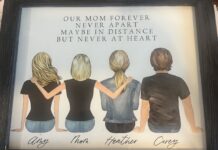
In the days before cell phones, computerized cars, or microwaves lived a group of women who ran when they heard a need, saddled a horse in the rain, and cooked stew in an iron pot over a fire to feed a family. They loved God and understood giving was more important than receiving.
Clemmie Copeland was born in 1882 in a one-room cabin in the Cumberland Mountains of Tennessee. The cottage had two glass windows, one door, and a rock fireplace to provide heat. Clemmie resided there with her parents and seven siblings.
Clemmie’s mother was a striking, resolute woman respected and known throughout the Cumberlands as Aunt Hennie. Her other titles were “Herb Doctor” or “Granny Woman” because she was reputed to have delivered 1500 babies, often riding through the rugged, forested terrain to reach those needing her services.
When the evening shadows fell through the windows, the lanterns illuminated Clemmie and her mother using tiny pieces of cloth, a needle, and thread to create beauty from old pants, dresses, or rags. Hand-stitched patchwork quilts were crafted to provide warmth for the family and gifts for others.
They spun cloth on spinning wheels or canned green beans on rainy days if they couldn’t work in the fields and gardens. Their hands were never idle, nor were their minds, thank goodness.
Clemmie Copeland Pugh lived 103 years. When she reached her 100th birthday, her hometown proclaimed September 12th to be Clemmie Pugh Day. Over 500 people gathered to celebrate this venerable woman who became known as the “Queen of the Cumberlands.”
After Clemmie married William Pugh in 1900, she started producing more quilts. Each tiny stitch created patterns sewn by her nimble fingers and envisioned in her inventive mind. Each became a work of treasured art.
When interviewed after her 100th birthday, the reporter asked Clemmie if it was true she had made more than 400 quilts, and she replied,
“Well, I’ve made ever’ bit of that many!” Laughing, she continued, “I always kept a quilt on hand, and then when I’d set myself down to rest, you know, I take my work up and work on the quilt.”
“Did you ever sell any?” he asked.
“My son sold one, but I’d give ‘um all away. My husband said I gave a good living away, too. But, I never lost anything by giving folks something.”
Clemmie’s quilts are stunning, but what rendered them a work of art was the work of her heart. She completed eleven more quilts after her 100th birthday, all stitched by hand. Her family’s rich history, photographs, and samples of her talent are displayed in the Appalachian Museum and in a book*, which is still for sale throughout the country today.
As a social gathering, my great-grandmother quilted with Clemmie at the church many evenings. Good friends, laughter, and hard work united these women not to waste idle time but to sew a stitch in time to be shared for the generations to follow. “They all took up their work after work was done.”
It stops me in my tracks when I contemplate how we use our hands today compared to the creations by hands long ago. As my fingers glide over the keyboard to type these words, I am grateful for those who taught me, “Idle hands are useless.”
Today, we use our fingers to text, we use them for the remote, we twiddle our thumbs in boredom, we wring our hands in worry, and we waste time. In the generations before us, no one had time to spend. One rested while stitching, spinning, canning, or cooking a pie for a sick neighbor. They gave their time freely and used their hands wisely.
Since the 1800s, our lives have been physically more comfortable, and women have more freedom. Most of us live in more than a one-room home that houses ten people. We have hospitals to rush to with obstetricians instead of a Herb Doctor. We have a Target where we can buy a quilt to keep us warm and buy green beans in a can. We park our cars on crowded, hot pavements instead of horses cooling in the shade.
However, are we happier? Could we not use our idle minds and hands to create comfort or cheer for someone else? All of us would leave our earth a better place by learning from those who knew with certainty that “we never lose anything by giving folks something.”
Staying busy producing joy for others fills our lives with happiness, period. If we do use our idle hands for good, we might live to be 103 and celebrate with a smile on our face, just like my Aunt Clementine,
“The Queen of the Cumberlands.”
*”John Rice Irwin: A People and Their Quilts”
_____
Lynn Walker Gendusa is a Georgia-based author and columnist. Her first book, “It’s All Write with Me! Essays from My Heart,” was published in 2018. Her latest book is “Southern Comfort: Stories of Family, Friendship, Fiery Trials, and Faith.” For more inspirational stories, click here. You may reach Lynn at www.lynngendusa.com.



